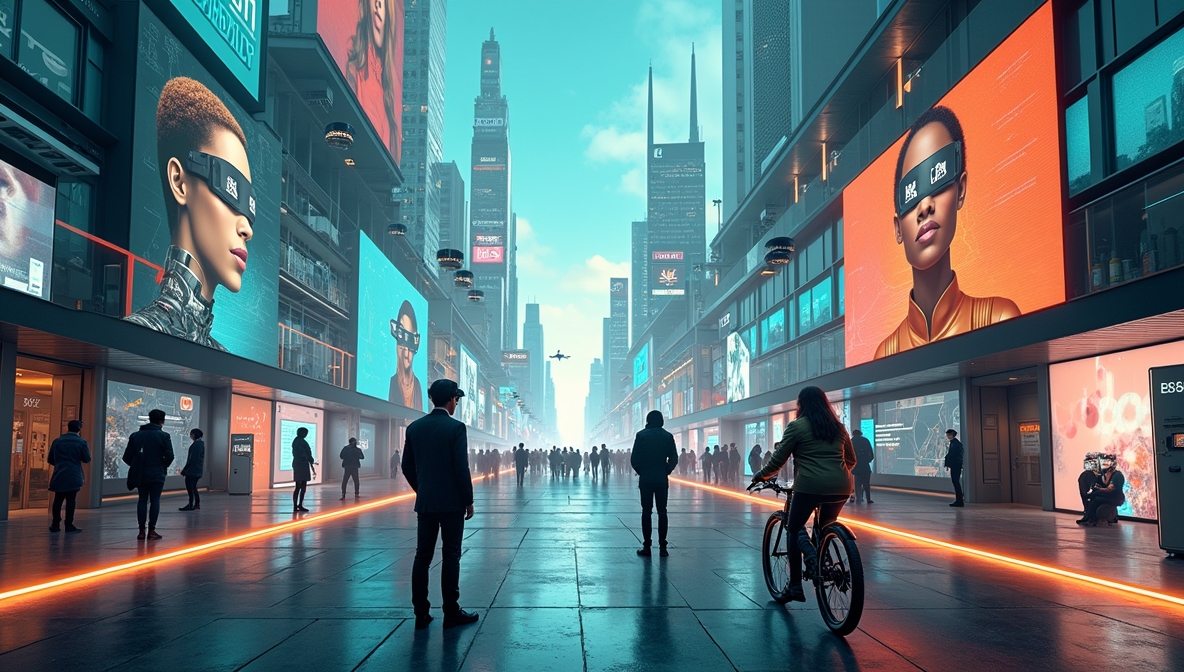고정 헤더 영역
상세 컨텐츠
본문

In a world that evolves at lightning speed, technology continues to be the greatest catalyst for change. From artificial intelligence (AI) to quantum computing, and from immersive experiences to sustainable innovations, the next five years will redefine how we live, work, and connect. But what exactly lies ahead? Let’s explore the top trends shaping the future of technology from 2025 to 2030.
1. Artificial Intelligence Will Become Smarter and More Ubiquitous
AI has already transformed industries, but in the coming years, it’s set to become even more integrated into our daily lives. We’ll see:
- Hyper-personalized experiences powered by AI in e-commerce, healthcare, and entertainment.
- Natural language understanding (NLU) that feels truly human.
- AI-powered assistants and agents making decisions, not just suggestions.
- Ethical AI frameworks emerging to ensure transparency and accountability.
Impact on Society:
AI will not only automate tasks but also augment human decision-making. Expect major breakthroughs in medical diagnosis, autonomous transportation, and even climate modeling.
2. The Rise of Quantum Computing
Though still in its early stages, quantum computing is poised to revolutionize complex problem-solving. Unlike classical computers, quantum systems can process multiple states simultaneously, allowing them to solve problems that are currently impossible.
Expected Developments:
- Quantum supremacy milestones by tech giants like Google, IBM, and startups.
- Real-world applications in pharmaceuticals, logistics, and cryptography.
- Development of quantum-safe encryption to combat next-gen cyber threats.
Why It Matters:
Quantum computing could unlock breakthroughs in materials science, energy storage, and AI acceleration, bringing unimaginable possibilities within reach.
3. 5G and 6G Connectivity Will Transform Communication
We’re still in the early stages of 5G rollout, but within five years, expect:
- Full-scale 5G adoption globally, enabling ultra-fast mobile internet.
- The first steps toward 6G development, offering terabit-level speeds.
- Smarter cities and IoT devices operating in real time.
How It Changes Our World:
Lag-free video streaming, real-time gaming, remote surgeries, and autonomous vehicles will thrive on this new infrastructure. Connectivity will become so seamless that we’ll forget we’re even connected.
4. The Metaverse: Hype or Reality?
Once a buzzword, the metaverse is evolving into a real ecosystem. Over the next five years, it will:
- Shift from entertainment to practical applications like remote work, education, and therapy.
- See the rise of interoperable platforms where users can carry digital assets across ecosystems.
- Leverage blockchain for ownership, identity, and commerce.
Potential Challenges:
Privacy, data protection, and standardization will be the biggest hurdles. Still, the metaverse could become the next phase of the internet—a persistent, immersive digital layer.
5. Sustainable Tech Will Become the Standard
Sustainability is no longer optional. Over the next five years, we’ll witness:
- Tech giants are adopting green computing practices and carbon-neutral goals.
- Growth in clean energy tech like solar, hydrogen, and energy storage.
- Smart buildings and cities powered by AI to reduce waste and emissions.
Key Takeaway:
Technology will be central to solving the climate crisis. From optimizing supply chains to innovating biodegradable materials, green tech is the future.
6. Biotech and Health Innovation Will Redefine Medicine
The pandemic accelerated digital health adoption, and the momentum continues:
- Widespread use of wearables to monitor vitals in real-time.
- AI-driven diagnostics are becoming more accurate than human experts.
- Gene editing (CRISPR) treatments are entering mainstream use.
- Virtual and augmented reality in medical training and patient care.
The Human Impact:
We’ll move toward a predictive and preventive healthcare model, reducing costs and improving outcomes globally.
7. Cybersecurity Will Take Center Stage
With more data and devices than ever, cybersecurity will become a foundational pillar:
- Zero Trust Architecture (ZTA) will be widely adopted.
- Surge in biometric authentication replacing traditional passwords.
- Development of AI-powered threat detection systems.
What to Watch:
Governments and enterprises will invest heavily in cyber resilience. Cyber warfare and digital espionage may increase, making security a global priority.
8. Edge Computing and IoT Will Redefine Data Processing
The shift from centralized to edge computing will:
- Reduce latency and bandwidth usage.
- Enable real-time analytics at the device level.
- Empower remote locations to process data without cloud dependency.
Industries Most Affected:
Manufacturing, healthcare, transportation, and retail will lead the charge as edge devices become smarter and more autonomous.
9. Human-AI Collaboration Will Be the Norm
Rather than replacing humans, AI will increasingly work alongside us:
- Co-pilots for software development (e.g., GitHub Copilot).
- AI content creators assisting in design, writing, and editing.
- Collaborative robots (cobots) in factories and warehouses.
Ethical Considerations:
The focus will shift to reskilling and defining ethical boundaries. Human-centered design will become essential.
10. Tech-Driven Education and Skills Training
Education will undergo a revolution, fueled by:
- Immersive learning using VR/AR.
- AI-based personalized learning paths.
- Platforms like Coursera, edX, and Khan Academy are evolving with real-time feedback.
Future of Work:
We’ll see a skills-over-degrees hiring trend. Micro-certifications and tech bootcamps will replace traditional degrees in many industries.
Final Thoughts: Embracing the Tech-Forward Future
The next five years will be defined by convergence: AI meets quantum. 5G fuels IoT. Green tech powers smart cities. As these technologies evolve, so too must our understanding, ethics, and global cooperation.
To thrive in this landscape, businesses, governments, and individuals must stay agile, educated, and ethically grounded. The future isn’t just coming—it’s already here.




